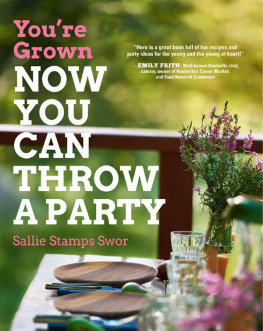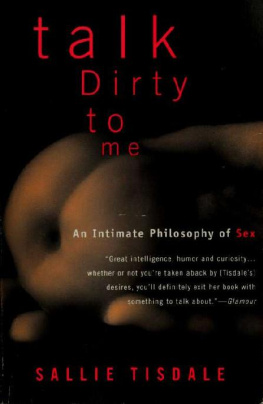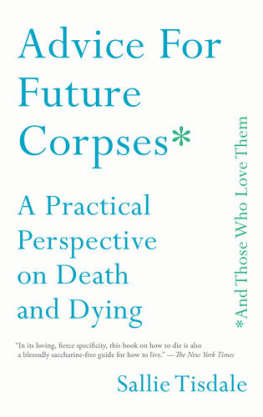Copyright 2013 Fortress Press. All rights reserved. Except for brief quotations in critical articles or reviews, no part of this book may be reproduced in any manner without prior written permission from the publisher. Visit http://www.augsburgfortress.org/copyrights/ or write to Permissions, Augsburg Fortress, Box 1209, Minneapolis, MN 55440.
This ebook was produced with http://pressbooks.com.
Preface: Religion, Ecology, and Economics
Over the years, when people have asked me what I do, and when I have answered that I am a theologian who investigates the connections of religion with economics and ecology, they often give me a funny look. What does religion have to do with financial and environmental matters? Isnt religion about God and human sin and salvation, or maybe human peace and comfort? At any rate, money and the earth have not figured largely in many Westerners understanding of the role of religion in life and culture.
But times have changed. The 2010 edition of the annual environmental publication The State of the World, subtitled Transforming Cultures from Consumerism to Sustainability, contains a lead article by Gary Gardner suggesting that the religions must be major players in the most important two-sided crisis of our timethat of economics and ecology. Gardner applauds the religions for their recent attention to environmental concernsfrom greening church buildings to reevaluating their Scriptures for ecological friendly doctrinesbut bemoans the fact that the religions have not given comparable attention to economics. Somehow they fail to see the intrinsic connection between environmentalism and consumerism. Increasingly, however, we are becoming aware that these apparently disparate fieldseconomics and ecologyare tightly interlocked, for it is the rampant use of energy that both creates our consumer paradise as well as depletes the planets resources and contributes to global warming. To put it as simply as possible: it is not sufficient to consume in a green fashion; rather, we must consume less, a lot less. Buying a Prius does not permit one to drive more, although that is often the underlying rationale of many people. Quantity still matters; in fact, we are at such a level of consumption in relation to the carrying capacity of our planet that reduction must take a major role in sustainability. No one wants to face this fact; changing from an SUV to a Prius is not enoughwe may have to reconsider the use of automobiles.
Thus it becomes clear that while shifting technology and stabilizing population will be essential in creating sustainable societies, neither will succeed without considerable change in consumption patterns, including reducing and even eliminating the use of certain goods, such as cars and airplanes, that have become important parts of life today for many.
The religions are being handed a challenge herea significant but difficult one. They are being asked to take on what no other field has been willing to assume, something at the heart of all religions: a wholesale transformation of dominant cultural patterns, particularly at the level of consumerism. As the 2010 State of the World asserts, Of the three drivers of environmental impactpopulation, affluence, and technologyaffluence, a proxy for consumption, is the arena in which secular institutions have been the least successful in promoting restraint. There it is: the most significant challenge the religions could undertake for the well-being of our planet and its inhabitantsbut a challenge for which no other field is so well preparedis restraint. Restraint at all levels, summed up in the Golden Rule (a variation of which most religions take as their central practice), is the one thing needed now, and is, I believe, both a gift from the religions and a challenge to them. It could be considered a coming home for the religions as well as their greatest contribution to the economic/ecological crisis facing us. As Gardner sums up so well:
Often pointed to as conservative and unchanging institutions, many religions are in fact rapidly embracing the modern cause of environmental protection. Yet consumerismthe opposite side of the environmental coin and traditionally an area of religious strengthhas received relatively little attention so far. Ironically, the greatest contribution the worlds religions could make to the sustainability challenge may be to take seriously their own ancient wisdom on materialism. Their special giftthe millennia-old paradoxical insight that happiness is found in self-emptying, that satisfaction is found more in relationships than in things, and that simplicity can lead to a fuller lifeis urgently needed today. Combined with the new found passion of many religions for healing the environment, this ancient wisdom could help create new and sustainable civilizations.
I consider this paragraph, from one of the standard-setting texts of our timethe carefully researched and thoughtful series of annual volumes on the state of the worldto be marching orders for the religions, and to be the central theme of my modest effort in this book. As Gardner points out, Advocating a mindful approach to consumption could well alienate some of the faithful in many traditions (probably an understatement!). But such a position would not only serve the planet but would also signal a return of the religions to their own spiritual roots and cause them to recognize how far they have deviated from them. My small contribution to condemning the heresy of consumerism is to take up this challenge with an in-depth study of one form of restraint in one religionkenosis, or self-emptying, in Christianity. It is interesting to note that in the 2010 State of the World, which contains over twenty-five articles on a huge range of topicsfrom business and education to health and mediaonly seven pages are given to the topic of religions absolutely critical role in transforming dominant cultural patterns. How can such a critical task be accomplished in a few pages? There is an obvious disconnect here. While study after study points to the spiritual nature of our problemthat it is one of changing both minds and behaviorsit is still often neglected or marginalized. It is also marginalized in the 2010 State of the World, but what it does is critically important: it calls on the religions to do what they have traditionally and essentially done and should dopresent a radical alternative to the good life for both people and planet. If the religions do their own centuries-old job, which no other field can or wants to do, of presenting wholescale alternatives to conventional worldviews of the abundant life, they will be neither comforting nor popular. But they might be right.
This particular essay is but one modest attempt to suggest a contribution from the religions, and especially from Christianity. Increasingly, the issue of how to live well has become one of how to change from how we are living now to a different way. As our crises worsen, more and more people are questioning the reigning anthropology of insatiable greed, and they are coming to the conclusion that the prospects of the consumer culture have been greatly overrated and that serious change at a fundamental levelof who we think we are and what we must dois necessary. Change at this level is incredibly difficult, and many people find it impossible. Yet it is precisely change at this fundamental level that most religions prescribe. Christians call it conversion, and it demands thinking and living differently than conventional society recommends.






